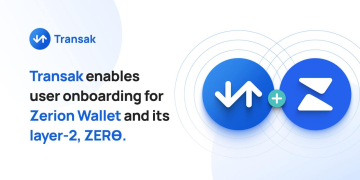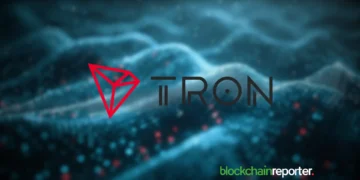In a move set to catalyze the adoption of blockchain technology, Ramp, a global financial technology company specializing in connecting cryptocurrencies to the mainstream financial system, has announced a strategic partnership with MetaMask, the world’s leading self-custody Web3 platform. The collaboration, announced today, paves the way for a seamless integration of Ramp’s on-ramp services directly into MetaMask’s mobile application and MetaMask Portfolio, revolutionizing the accessibility and functionality of cryptocurrencies.
This groundbreaking integration will enable users from over 150 countries and territories to effortlessly convert traditional currency into cryptocurrencies through MetaMask, thereby unlocking the full spectrum of blockchain applications, from decentralized finance to Web3 gaming. It’s worth noting that MetaMask achieved a significant milestone in 2022, surpassing 100 million users.
Ushering in a New Era of Web3 Accessibility
Plans are also underway to integrate Ramp’s top-tier off-ramp capabilities into the MetaMask wallet. This development will provide users with the capability to convert cryptocurrencies back into traditional currency, effectively closing the loop between traditional finance and decentralized platforms. This comprehensive approach aims to empower users with unparalleled financial freedom, enabling them to navigate the ever-evolving crypto landscape with ease.
“At MetaMask, we recognize that seamless, secure, and user-friendly on-ramps are essential for bridging the gap between traditional and decentralized finance. Integrating Ramp Network is not just a technical enhancement; it’s a commitment to providing our users with the most intuitive and frictionless experience as they venture into the world of cryptocurrencies. With Ramp, we’re ensuring that everyone, from novices to experts, has access to the decentralized future without compromise,” emphasized Lorenzo Santos, Senior Product Manager at MetaMask.
This partnership marks the commencement of a broader alliance with a shared vision of taking blockchain technology to the next level and making it an integral part of our digital lives. Together, Ramp and MetaMask are doubling down on democratizing access to Web3, ensuring it’s not just reserved for the tech-savvy but accessible to everyone.
Szymon Sypniewicz, CEO at Ramp, expressed his excitement about the collaboration, “MetaMask and Ramp’s collaboration has just accelerated the Web3 revolution! With Ramp’s unrivaled setup in South America and support for PIX instant payments in Brazil, we’re talking about onboarding 100 million Metamask users, across 150+ countries and 40+ local currencies, straight into Web3 – from zero to crypto in mere seconds. Add to that mix direct access to 9 different Ethereum Layer 2 networks (with more to come), and one thing is clear: this isn’t just another partnership, it’s a quantum leap forward. The user-friendly Ramp widget doesn’t just make it easier; it makes it inevitable. Welcome to the future where Web3 is everyone’s reality.”
Ramp, a financial technology company with a global reach, is dedicated to building solutions that bridge the gap between the crypto economy and the existing global financial infrastructure. Its core on- and off-ramp products offer individuals and businesses in over 150 countries a seamless experience when converting between cryptocurrencies and fiat currencies, all while being fully integrated with major payment methods.
ConsenSys, the firm behind MetaMask, is a leading blockchain and Web3 software company that has been at the forefront of Web3 ecosystem innovation since 2014. Their suite of products, including the MetaMask platform, has played a pivotal role in simplifying blockchain usage and development, making Web3 universally easy to use and accessible to users, creators, and developers worldwide.
With this landmark partnership, Ramp and MetaMask are set to pave the way for a more inclusive and user-friendly blockchain experience, bringing the benefits of Web3 technology to a global audience. As the world continues its transition towards a more decentralized future, this collaboration represents a significant step forward in achieving that vision.























